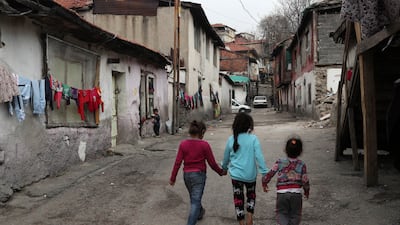War may cause adverse biological DNA-level changes and have lifelong effect on the health of survivors, a study of Syrian refugees has found.
In a breakthrough study, published in JAMA Psychiatry, scientists found children exposed to civil war, which began in 2011, showed several DNA changes that could not be attributed to other hardships or living conditions.
“While it's common knowledge that war has an adverse impact on the mental health of children, our study has found evidence of the biological mechanisms underlying this effect," said lead author Prof Michael Pluess, from the school of psychology at the University of Surrey. “We also found that war is linked to slower epigenetic ageing – which could mean that war could be impacting the development of children.
“All told, our study paints a clearer picture of the tragic cost of war, beyond the mental stress, for the many millions of children caught in the middle of it.”
Saliva samples were taken from 1,507 Syrian refugee children, aged six to 19 and living in informal settlements in Lebanon. Their DNA methylation (DNAm), which can turn genes on or off without changing the DNA code, was tested.
Two Lebanese organisations – the Institute for Development, Research, Advocacy and Applied Care, and St Georges University – collaborated with the University of Surrey and University College London on the work. Questionnaires, completed by the children and their caregivers, were used to measure exposure to the war-related events.
The study found that when someone experiences extreme events, it can lead to changes in DNAm, which might affect their long-term physical and mental health. Some of the changes were linked to genes involved in critical functions, including how nerve cells communicate and neurotransmission, as well as moving materials in cells.
These changes are not known to be present in other forms of trauma, such as poverty or bullying, suggesting that war may lead to unique biological responses in the body.
Researchers also looked into how the biological effects of war differ between boys and girls. They found that girls who experienced war events showed more significant DNAm changes than boys, particularly in genes linked to stress response and brain development.
While boys and girls were affected, girls showed a stronger biological response to war exposure, suggesting that they may be more vulnerable to the long-term effects of trauma at a molecular level.
DNAm is a natural process where small chemical groups, called methyl groups, are added to certain parts of our DNA. They act like switches, turning genes on or off or adjusting how strongly they are expressed. This does not change the actual DNA sequence itself. DNAm plays a key role in normal development and can be influenced by diet, stress and trauma.


